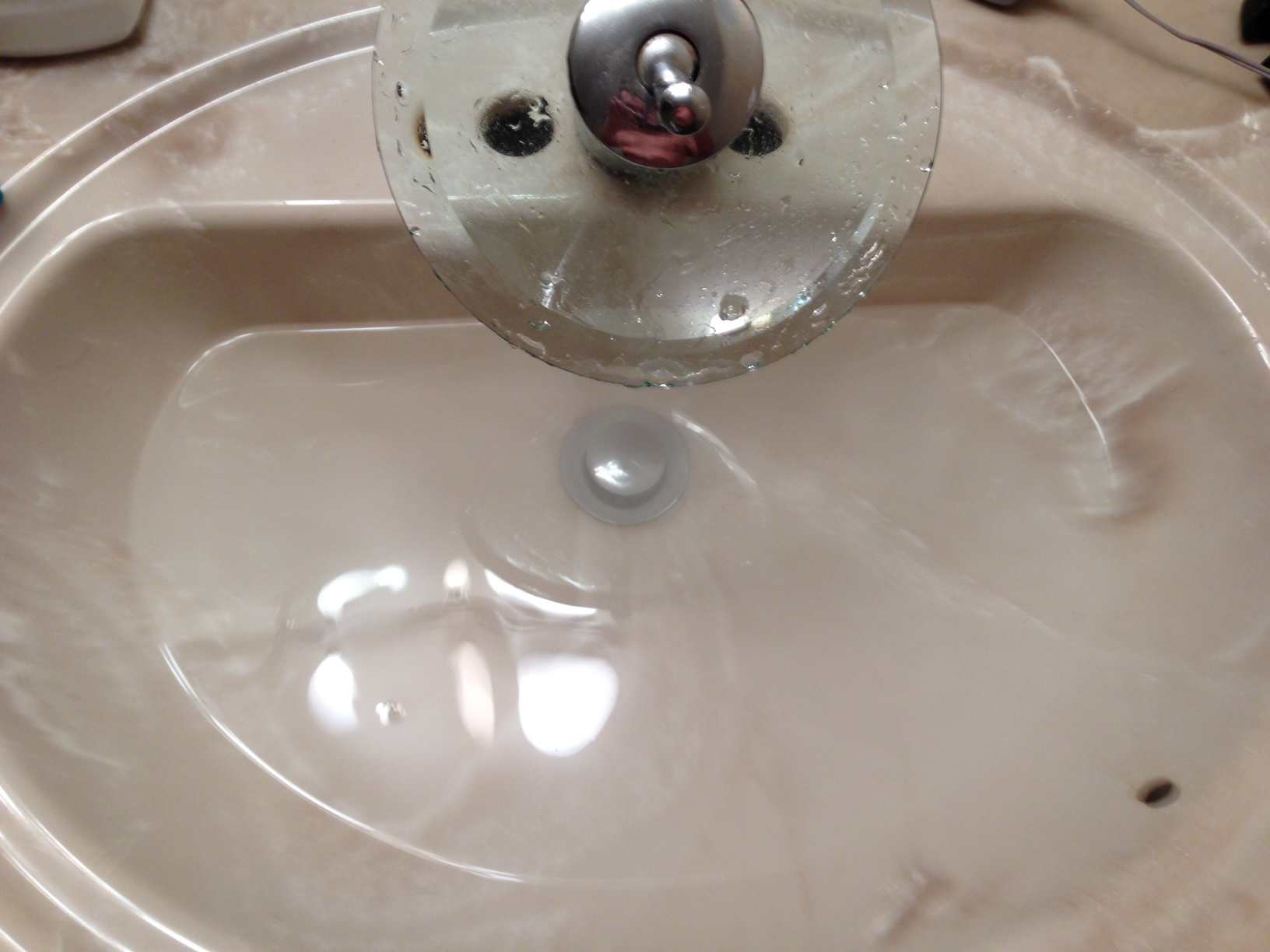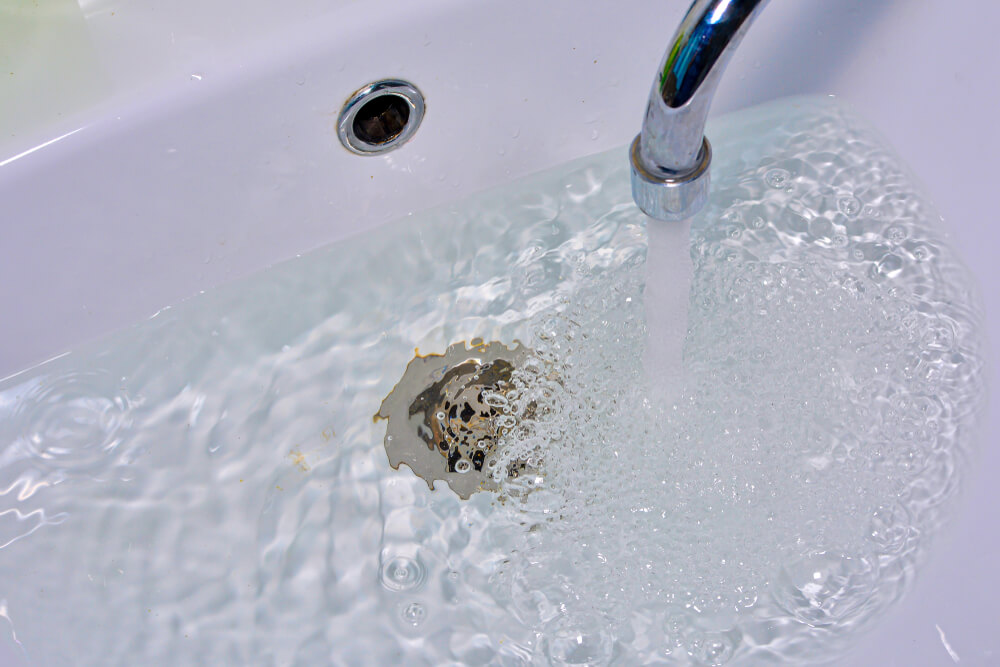Are you in search of facts concerning How to Fix a Slow Draining Sink?

Intro
We've all existed: You're cleaning your teeth or washing your hands, and you see the water pooling in the sink. Instead of promptly swirling away, it lingers, turning your once-refreshing early morning routine right into a small overload scene. A slow-draining sink isn't just annoying; it's commonly a sign of bigger plumbing concerns hiding under the surface area. The good news is that the majority of slow-draining sinks can be fixed with a little knowledge, a few fundamental devices, and some persistence. Prepared to tackle this task head-on? Allow's roll up our sleeves and dive right in.
Understanding the Reasons For a Slow-Draining Sink
Prior to you start poking around in your pipelines, it assists to understand what could be causing the downturn. Understanding the root cause makes it much easier to choose the ideal fix.
Typical Perpetrators Behind Slow Water Drainage
So, what's blocking things up? Generally, it's a blend of day-to-day debris-- assume hair, soap residue, toothpaste residue, and remaining food fragments. With time, these tiny bits collect and cling to the pipe wall surfaces, progressively tightening the passage and making it harder for water to travel through. In some cases, mineral deposits from hard water can also add to the substance, creating the excellent tornado for persistent blockages.
When is it Time to Act?
If you notice the water draining slower than common, it's a great idea to intervene earlier as opposed to later. Waiting too long can lead to complete blockages, undesirable smells, and even pipe damage. If the water takes greater than a couple of seconds to remove after switching off the faucet, consider it a red flag and prepare to place on your do it yourself hat.
Tools and Materials You'll Need
The right tools make all the difference. The good news is, you will not need a totally equipped plumbing's van to get the job done.
Important Tools for Do It Yourself Services
A plunger is your best beginning factor. A tiny, sink-sized bettor produces suction that can dislodge small obstructions. For more relentless obstructions, a drainpipe snake (occasionally called a plumbing professional's auger) functions wonders. A pair of handwear covers, a flashlight, and perhaps a set of protective goggles are additionally useful.
Advised Cleaning Solutions
Moderate dish soap and hot water can aid break down oily accumulation. A combination of cooking soda and vinegar is a time-tested natural remedy, and chemical cleansers offer an even more eco-friendly approach. Keep chemical drainpipe cleansers as a last resource, as they can be harsh on your pipes.
Safety First: Safety Measures and Preparations
Prior to you launch into unclogging setting, consider safety and security. You're taking care of possibly dirty water and particles, so slip on a set of gloves. If you're utilizing chemical cleaners, ensure the room is well-ventilated and follow the instructions on the label.
Safety Equipment and Work Space Arrangement
Put down some old towels or rags around the sink location to capture splashes. Remove any kind of things that could get in your means, like soap dispensers or tooth brush owners. Make sure you have great lighting-- get hold of a flashlight if required.
Step-by-Step Overview to Dealing With a Slow-Draining Sink
Now, let's get involved in the nitty-gritty. This step-by-step process will assist you via simple strategies to recover your sink's drain.
Step 1: Get Rid Of and Tidy the Stopper
Often, the stopper (that tiny plug you push down to block water) is the very first culprit. Remove it meticulously and wipe any kind of hair or crud trapped around its base. Wash it extensively prior to putting it back in place.
Action 2: Utilize a Bettor to Dislodge Debris
Got that bettor ready? Position it over the drain and offer it a couple of company pumps. The concept is to develop suction that can loosen up any type of clog. If you see bits of debris floating up, you get on the appropriate track.
Step 3: Try a Drain Snake or Cord Wall Mount
If the plunger doesn't work, it's time to draw out the drain serpent. Gently feed it into the drainpipe and spin as you go. You might really feel some resistance-- that's most likely the obstruction. Keep turning and pulling till you eliminate the blockage. If you don't have a drainpipe snake, a corrected cable wall mount can operate in a pinch.
Tip 4: Use a Do It Yourself Drain Cleaner
A natural cleaner made from baking soda and vinegar can break down residual gunk. Pour half a cup of baking soda into the drainpipe, adhered to by half a mug of vinegar. Allow it fizz for around 15 mins, after that flush with warm water. This chain reaction usually does wonders for small blockages.
Tip 5: Reassemble and Test the Sink
Placed whatever back with each other and run the faucet. Does the water now swirl away at a respectable speed? If yes, offer on your own a pat on the back. Otherwise, do not anguish-- there are still a few even more dress up your sleeve.
Alternate Approaches for Stubborn Clogs
Not all blockages are created equivalent. If your sink still declines to cooperate, think about these alternative options.
Sodium Bicarbonate and Vinegar Approach
We currently discussed this, but it deserves keeping in mind again. This mild, eco-friendly approach is more secure than chemical cleansers and frequently rather effective.
Enzymatic Drain Cleaners
Enzyme-based cleansers make use of all-natural germs to digest organic matter. They're a superb selection if you're wanting to avoid severe chemicals. Just keep in mind, they might take a bit longer to function their magic.
Chemical Drainpipe Cleaning Company: Advantages And Disadvantages
Chemical cleaners can blast through difficult clogs fast, yet they're not without downsides. They can create warmth and fumes, damages pipes if used exceedingly, and present environmental threats. Utilize them moderately, and always follow the instructions very carefully.
Safety Nets to Maintain Your Sink Flowing
Prevention is the best cure. By adopting a few simple practices, you can maintain your sink from slowing down to begin with.
Regular Cleaning Up Practices
Wipe down the sink container and fixture area frequently. Eliminate hair or food fragments before they have a chance to wash down the drainpipe.
Preventing Unsafe Substances Down the Drain
Reconsider prior to dumping coffee grounds, oil, or fibrous veggie scraps down the sink. These offenders cling to pipe wall surfaces, developing obstructions gradually.
Regular Maintenance Checks
Set up a fast monthly evaluation. Run hot water through the sink for a few mins, paying attention to the circulation. If it appears slow, act quickly before it comes to be a full-on clog.
When to Call an Expert Plumbing Technician
Occasionally, despite just how difficult you attempt, that clog just won't budge. That's when it's time to generate the pros.
Signs That Suggest an Extra Serious Problem
If your sink drains gradually in spite of numerous efforts, or if you see water backing up in other fixtures (like your shower or bathroom), you may have a much more significant plumbing problem lurking deeper in the system.
Stabilizing Do It Yourself Initiatives with Expert Aid
While DIY can save you money and use a sense of achievement, there's no shame in calling a professional. A professional plumbing professional can evaluate your entire pipes arrangement, making certain there's no underlying damages or long-term issue that might cost you much more down the road.
Contrasting Expenses and Long-Term Solutions
Prior to choosing, consider the big picture. An affordable, quick fix may address the problem briefly, however purchasing a more long-term remedy can conserve you cash and tension in the long run.
Evaluating the Costs of Do It Yourself vs. Expert Fixes
DIY fixes typically cost little greater than the rate of a bettor or a container of baking soft drink. Professional services, on the other hand, featured a price tag yet might protect against repetitive problems and costly repairs later.
Purchasing Quality Fixtures and Upgrades
If your sink's style adds to constant obstructions, it might be worth updating to higher-quality components or modifying the plumbing design. Consider this a financial investment in your house's functionality and comfort.
Final thought
A slow-draining sink can seem like a small irritability, but it's often an indication that your plumbing needs a little TLC. By comprehending the origin, using the right tools and strategies, and devoting to easy safety nets, you can maintain your sink streaming freely. And when all else stops working, never ever wait to call in a professional-- your home's plumbing deserves the financial investment in treatment and upkeep.
Three Common Ways to Fix a Slow Drain
Baking Soda Method
Boil a full pot of water. Measure out cup of baking soda and pour it down the drain. Then take cup of the magical cleansing substance known as white vinegar and drop that down there too. Allow the mixture to fizz in the drain for five minutes as the vinegar and baking soda combine. Now dump in that whole pot of boiling water. This combination of cleaning substances should clear out anything that is causing your sink to drain slowly. If it doesn t...
Zip-It
If the baking soda method doesn t clear out your drain, it may be because a significant amount of hair and/or other debris has collected there and you need to remove it. Purchase a Zip-It tool at any home improvement or hardware store and insert it into your drain. It will catch any collected hair or debris that s blocking the flow of water. Pull it out. If it s got a big clump of hair, etc. on the end, you ve probably got your culprit.
Drain Cleaner
If these methods don t work, there is the standard drain cleaner that you can also buy in a hardware store or even your local grocery store. It s better if you can use a household solution, but these drain cleaners often work in a pinch. They re very simple to use. You generally just dump them in your drain and wait. If even this method is not effective, it may be time to call the plumber.
https://www.mrrooter.com/oneida/about-us/blog/2017/july/three-common-ways-to-fix-a-slow-drain/

I discovered that review on How to Fix a Slow Draining Sink when scouting around the internet. Sharing is caring. Who knows, you may very well be helping someone out. Thanks a bunch for your time. Revisit us soon.
Schedule Your Job Now